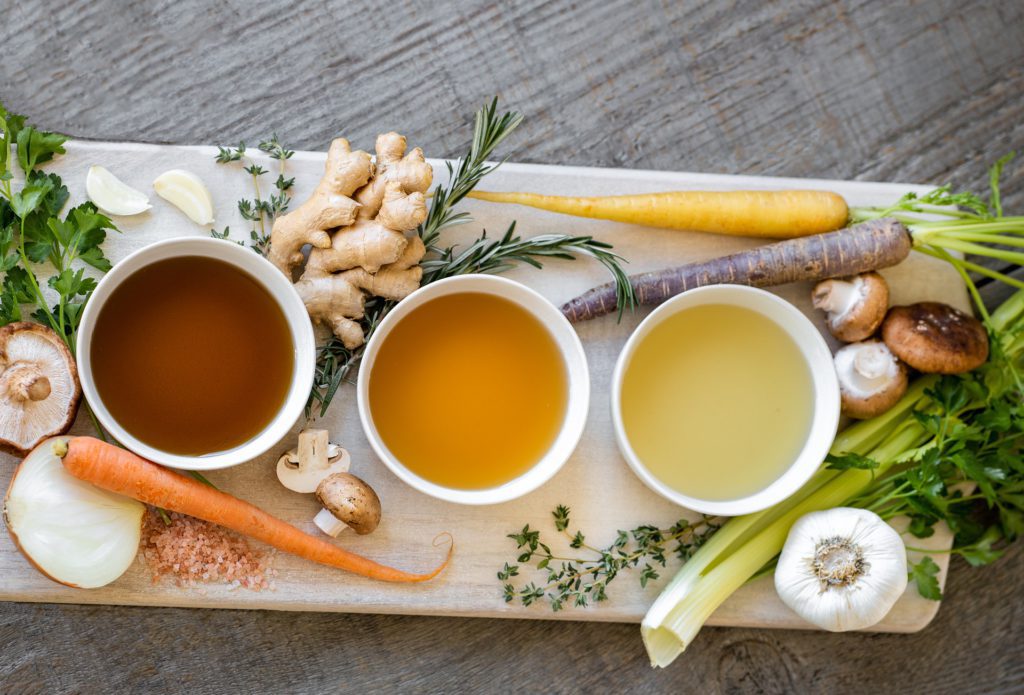I would be shocked if you have not had someone tell you about the magical powers of consuming collagen. The market for dietary collagen has exploded in the last few years. Your hairdresser may have suggested a scoop of the powder in your morning coffee to help bring back disappearing hair. Perhaps your nail tech swears her nails are stronger because she drinks a glass of bone broth every day. Plenty of people are on the collagen bandwagon, including me! Let’s explore the information surrounding collagen and then you can decide if it’s worth it or just hype.
What is Collagen?
Let’s first make sure we all understand some basics about collagen. Collagen is the main protein in your body. It’s found in your skin, tendons, muscles, and connective tissues. It’s kind of like the glue that holds us together and you already make it on your own. Yep, you heard me right. You already make collagen! So why is your favorite celebrity or Instagram fitness guru telling you to spend tons of money on collagen powder to consume every day? Because as we age we stop producing enough to meet our body’s demands. We start losing a little bit of collagen in our 20’s but that picks up once we hit menopause. This is one of many reasons why as we age, our wrinkles get deeper, our skin loses elasticity, we start losing hair, and our joints ache. The big question is if consuming a collagen supplement actually replaces our diminishing supply.
Give Me the Data
As you read collagen studies you will see phrases like “promising studies show”, “some studies suggest” and the really skeptical phrase “there is some evidence.” I won’t link to all studies, mainly because there are too many and I doubt you would click on them anyway, but there a few worth pointing out. Many studies have shown consuming collagen can decrease the depth of wrinkles, improve the elasticity of skin, and reduce visible signs of aging. There are also studies that show improvement in joint health after taking a collagen supplement.
Does all this mean you should spend $30 on a 12 oz jar of collagen peptides? Maybe, maybe not. There are still plenty of skeptics out there that feel digesting collagen isn’t the way to go. They believe that stomach acids might even break down collagen before it can be beneficial to your skin, hair, or joints. And collagen has a way of going to where your body feels it needs it most, not necessarily where you want it to go.
Didn’t You Say We Make Collagen?
Let’s go back to the fact that we actually make our own collagen. Can we help with that production? We sure can. It starts with consuming enough protein. Proteins hold the proper amino acids to help our bodies make collagen. The average woman needs at least 80 grams of protein per day. Also, consuming enough Vitamin C, zinc, and copper will aid in the production of collagen. Vitamin C is found in fruits and vegetables like citrus, berries, and peppers. Zinc is found in meat, shellfish, beans, nuts, and seeds. Copper is also found in nuts and seeds, plus my favorite, chocolate! If you are eating a well-balanced diet, rich in proteins, fruits, and vegetables, you are most likely giving your body the tools it needs for collagen production.

Bone broth is another good source of collagen.
Collagen Powder is Expensive!
After reading through this article, you will need to decide for yourself if you want to take collagen supplements. By all means, do more studying on your own. I am not an expert in this field and this blog article is a big IMHO! Quality collagen powder can get very pricey. Personally, I find the studies to be compelling enough that I am willing to make the investment. If you feel that purchasing quality collagen powder isn’t in the budget, there are still ways to give your body what it needs.
We already touched on the benefits of having a good diet to help with collagen production. There is also an inexpensive way that you can make collagen at home and it’s called bone broth. Bone broth is made by simmering animal bones and connective tissues in water for upwards of 8-10 hours. This extracts collagen and other minerals from the bones and tissues. You’ll know you made bone broth because it will turn into a gel when cold. Simply reheat the broth to be used in soups or chillis, or use bone broth as the liquid when making brown rice. Please note that studies on the efficacy of bone broth are similar to collagen supplements but it’s such a yummy risk, I take it willingly!
Wrap it Up
So now you have my 2 cents on collagen. Take them with a grain of salt, please. Always do your own research and make choices that best fit your lifestyle, budget, and values. I didn’t get into the different types of collagen, whether it can be used as a protein source, or how to choose a quality supplement. Let me know if you have specific questions on any of those topics.



